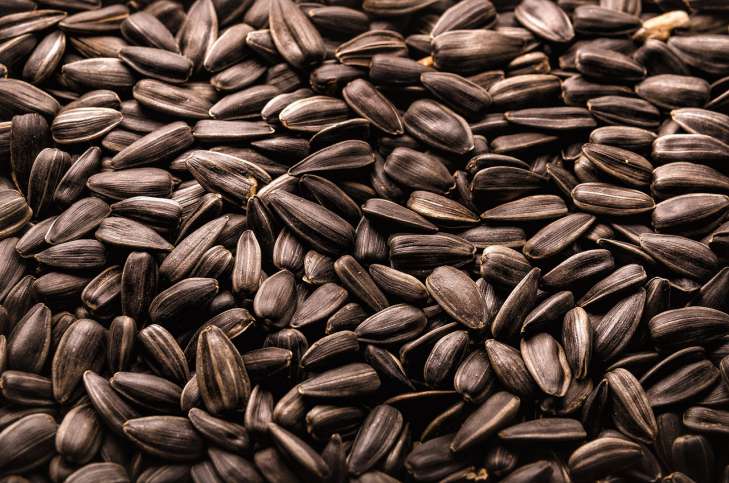Sunflower Seeds: Health Benefits
Fresh seeds have a sweetish, buttery taste with a slight nutty and herbaceous undertone.
What are the benefits of sunflower seeds
They contain a large amount of vitamin E - 32.2 mg per 100 g (at a norm of 15 mg per day).
This is one of the most important vitamins, since it takes an active part in many biochemical processes in our body.
Sunflower seeds are rich in B vitamins (B1 - 1.84 mg per 100 g of product, B2, B5, B6, B9).
The high content of magnesium and betaine in sunflower seeds helps lower blood pressure; thereby reducing the likelihood of developing a heart attack and/or stroke.

Moreover, the presence of arginine in these seeds also helps improve the functioning of the cardiovascular system.
Benefits of roasted sunflower seeds
The seeds contain fiber, which improves digestion, saturates and cleanses the body of toxins.
Due to the high content of fatty acids, sunflower seeds improve the functioning of the cardiovascular system, tighten the walls of blood vessels and normalize blood pressure.
How many seeds can you eat per day
Healthy people without excess weight and diseases of the digestive system can eat 50-100 grams of seeds per day.
That's a lot - a whole glass. Nevertheless, you need to take into account the individual characteristics of the body, the total daily calorie intake and other factors.
Previously, we talked about the benefits of chili peppers.


